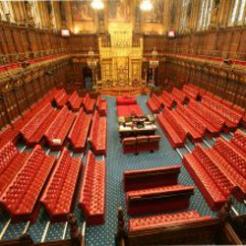The House of Lords last night debated whether to change the definition of social investment and whether to force charities undertaking social investment to get professional financial advice.
The debate took place during the third day of the committee stage reading of the Charities (Protection and Social Investment) Bill, which will include the first definition of social investment to appear in statute.
The proposed definition in the bill is that social investment is made when a charity takes an action "both directly furthering the charity’s purposes and achieving a financial return for the charity"
Liberal democrat peer Baroness Barker suggested that this was too much a matter of judgement, and that a social investment should primarily be to further the charity’s purposes.
Conservative peer and parliamentary secretary Lord Bridges of Headley argued that “neither the furtherance of the charity’s purposes nor the financial return should be required to take precedence”.
“To hold one above the other would potentially restrict the breadth of investments that fall under the power, thereby making it less likely to be used," he said. "In order to maintain as wide a scope as possible for the power’s use, so that the power may have the largest possible impact, I hope the noble Baroness will withdraw her amendment.”
Barker went on to do so.
Conservative peer Lord Hodgson of Astley Abbots mentioned concerns that the bill was not doing “what it says on the tin” in regards to explaining and defining social investment.
Labour peer Lord Watson of Invergowrie said that Hodgson wanted to “advocate a statutory power for charity trustees to engage in social investment and statutory clarification of just what social investment is and involves”.
He said this made it all the “more puzzling why the previous Government chose not to include the social investment aspects in the draft Bill that was the subject of pre-legislative scrutiny by a Joint Committee of both Houses”.
Watson said that the term social investment is often confusing to many, and a “lack of transparency could undermine its potential”.
He said: “This is the first time that social investment has been defined in statute, although neither the Bill nor its Explanatory Notes are particularly helpful in their attempts to define it”.
An amendment, put forward by Lord Cromwell and Lord Hope of Craighead, looked to add a line which showed that trustees must consider whether the social investment concerned are subject to the “same regulation as commercial investments that are undertaken in regulated financial markets and, if not, whether it would nevertheless be appropriate to proceed with it.”
The amendment, which was not moved, was criticised by Lord Hodgson who suggested that it was trying to “force a regulatory system on to a new type of investment that does not fit with it at all well”. He suggested that if trustees were to approach advisers they would likely to be scared off of making the investment, due to the costs related.
Lord Hodgson said that he believes that the amendment is not necessary because “everyone understands that if you are going to make financial investments you will take advice. You will now take advice over social investments too. It does not need special categorisation.”









